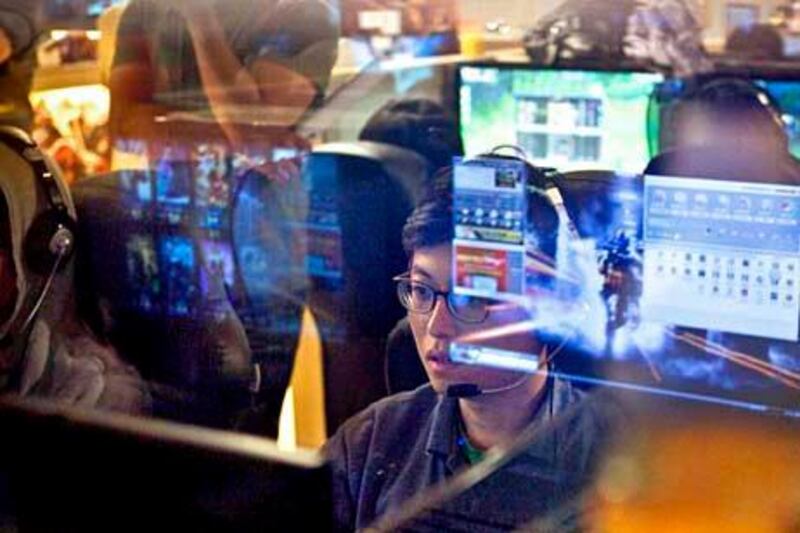Less than two decades ago, just a small number of South Koreans had access to the internet, in stark contrast to the current situation where almost all of them enjoy the fruits of the Web.
Even in 1998, the number of internet users was only seven per 100 people. South Korea lagged behind other countries in ratings by the Organisation for Economic Cooperation and Development (OECD) of computer ownership and internet usage, implying Koreans had low levels of information utilisation skills.
The government recognised this as a major modernisation challenge as the world leading economies, such as the United States and Japan, were in the forefront of developing their information and communication technology (ICT) sectors. Numerous reports pointed to ICT as a crucial driving force for economic growth.
Incredibly, by 2005, just seven years later, South Korea developed an advanced information infrastructure. All 144 major cities and all 10,400 public schools were digitally connected, allowing 93 per cent of Korean households to have access to the Web.
The number of internet users per 100 people reached 73, ranking seventh among OECD countries. Household computer ownership increased dramatically, putting South Korea in the top five among OECD countries. Wireless internet covers almost all locations, including subways.
Among South Korea's total population of about 50 million, more than 30 million people own smartphones. Furthermore, South Korea is increasingly adopting e-technology. E-businesses constitute a large fraction of the economy while e-government and e-learning are rapidly winning popularity.
Smart technology becomes a natural part of life applied to various facilities such as smart cars and smart homes across the country. It is drastically changing the lifestyles of ordinary people in South Korea, where navigation of cars is linked to the information system of smartphones and where lighting and heating of homes is remotely controlled.
What lies behind this incredible achievement?
The answer is the government's long-term and strenuous support for the sector since the mid-1980s. At that time, the government was committed to becoming a leading country in ICT, under a national slogan: "Though we were late in industrialisation, we will lead in informatisation."
Since the mid-1980s, preparation for the "informatisation" of society has been a major part of the country's growth strategy.
The Electronics Industry Growth Plan called for systematic governmental support for the electronics industry. Along with semiconductors and electronic telephone exchangers, the plan designated computers as one of the top three items in an effort to direct the industrial focus toward electronics rather than then prevalent home appliances. By lowering costs of computer ownership and internet usage, the plan greatly contributed to the expansion of ICT users.
In the 1990s, the government continued to provide the sector with various incentives, which, together with increased investment from the private sector, spurred the formation of a robust electronics industry. To help the ICT sector to prosper without restraint, the government carried through with a structural reform in the industry.
The ministry of information and communications was geared to design and coordinate various tools for ICT promotion at the national level. Necessary legal grounds were also laid for free competition in the information technology (IT) market, promoting a customer-oriented mindset among operators, which resulted in better services and lower prices.
The government's strategy for the promotion of informatisation had two main pillars.
The first was to continue to expand the ICT infrastructure rapidly expand across the country. Under the initiative, fibre-optic cables and automatic teller machine networks installed throughout the country allowed even people living in the remote areas access to broadband services. Such accelerated expansion in infrastructure laid a fertile ground for further technological developments.
Education and training represented the other pillar of the strategy. Seoul launched all-round campaigns to raise public awareness of the information age to arouse nationwide support for pro-ICT policies. With the goal of promoting digital literacy of all people, the government funded personal computer purchases and basic IT education in schools.
In addition to educating the general public and students, the government put priority on training specialists. Nurturing IT professionals became a top national agenda, which was supported by targeted public investment in university facilities and R&D centres.As a result, South Korea has developed a stable consumer pool for both ICT hardware and services, bringing in significant economic benefits.
A high digital literacy among people boosted strong domestic demand for ICT which, in tandem with the full-scale governmental support, led to a boom in the ICT industry on the production end.
Such a visionary and strenuous governmental support in building infrastructure and providing education for ICT has so far nurtured both consumption and production capacities of the industry, thereby expanding utilisation of the advanced technologies to almost all of the population, and making working places highly digitalised and efficient.
Compared with the early 1990s, when ICT were used only by a small segment of people, present-day South Korea is fully digitalised and inter-connected, where a virtuous cycle based on the most modern technologies is firmly rooted in the economy.
This is the last in a series of articles written exclusively for The National by Hyun Oh-seok, the president of the Korea Development Institute





